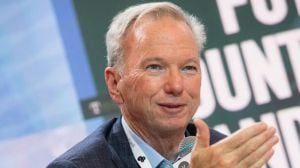No religious angle to deal: Omar
National Conference president Omar Abdullah on Saturday condemned the likes of Mayawati who are linking the Indo-US nuclear deal to the “Muslim concern” in India...

National Conference president Omar Abdullah on Saturday condemned the likes of Mayawati who are linking the Indo-US nuclear deal to the “Muslim concern” in India and said that while the deal’s merits can be debated ad nauseam, it must not be dubbed in religious terms.
Omar told The Sunday Express: “The Muslim community has been relatively silent over the country’s growing ties with Israel or the country’s economic engagement with the US. I cannot understand how leaders like Mayawati have suddenly found a religious dimension to the nuclear deal. Would that mean that the deal is good for the Hindus and bad for the Muslims? Or that electricity generated will reach only Hindu homes?”
Devoting his latest post on his blog to the nuclear deal, he writes: “I can understand it being against the national interest or against economic interest but I can’t understand how it can be against any one religion.”
Most responses to his post supported the view. “There were some who wanted the Israel-Palestine conflict to condition our views, but I don’t think that the common man who doesn’t even understand the deal fully, would be inclined to dub it in communal terms,” Omar said.
The young leader said “while he didn’t fully understand the deal”, he had no reasons to doubt former president A P J Abdul Kalam’s views on the subject. “Kalam was not given a second term by this Government. Yet the former president has spoken in the national interest. I would go with him rather than some politician who would be more interested in whether the deal is being done with the US or China,” said Omar.
He has not discussed the deal with his father but hoped that his party would formulate a view when the issue is discussed in Parliament. Writes Omar in his blog: “The US is no friend of the Muslim world, but what about the Muslims working in American companies based in India or for that matter even based in the US. What of aids set up with US money or earthquake relief to Kashmir (if any did) from US based aid agencies?
“While I have questions about both the security and the economic aspects, I also recognise that electricity generated will not exclude a particular religion nor will any jobs created as a result of the agreement be used to benefit only a particular community but my views could clearly be the minority opinion.”
The National Conference, a special invitee to the United National Progressive Alliance, didn’t attend its last meeting.






- 01
- 02
- 03
- 04
- 05

























